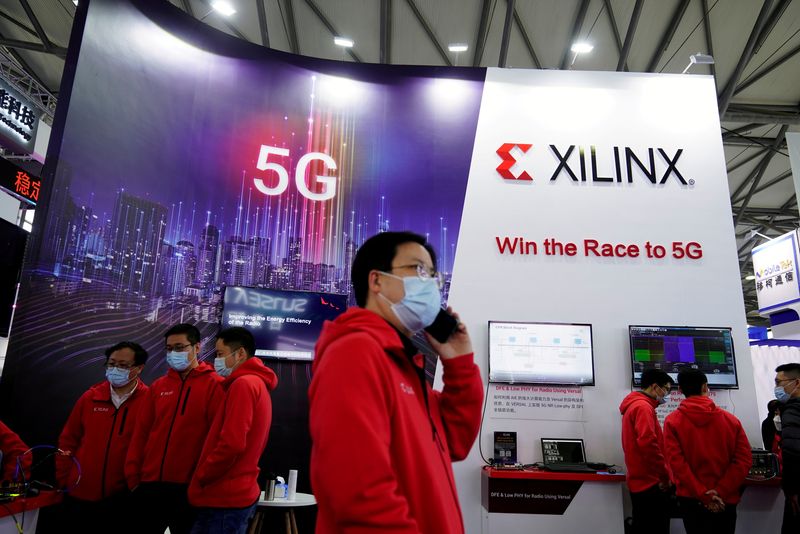By Jane Lanhee Lee
OAKLAND, Calif. (Reuters) - Semiconductor designer Advanced Micro Devices Inc (NASDAQ:AMD) said on Monday it has finalized the purchase of Xilinx Inc (NASDAQ:XLNX) in a record chip industry deal valued at about $50 billion, giving it an extra edge in the key data center market.
The closing of the deal comes on the heels of Nvidia (NASDAQ:NVDA) Corp's decision to abandon its plans to buy SoftBank-owned Arm Ltd, citing regulatory hurdles.
AMD's transaction moved ahead with all necessary approvals for the acquisition, it said.
AMD Chief Executive Officer Lisa Su told Reuters that, between AMD's processor technologies and Xilinx's system on chips and field programmable chips, the two businesses are complimentary. "That was our focus in talking to the regulatory authorities across the world," Su said. She added that Arm was an important partner for AMD but declined to say more about Arm's possible next steps.
The deal, announced in October 2020, was originally valued at $35 billion, but the rise of AMD's stock value has pushed up the price tag, according to AMD.
AMD shares soared more than 4% on Monday. Other chip makers also gained.
With the Xilinx acquisition, Su said AMD will be able to increase its breadth in key markets like data centers where Xilinx has a strong network and AI presence, as well as in the 5G communications, automotive, industrial, aerospace and defense markets. "Those are all markets that AMD has had very little presence in and they all need high performance computing as well," she said.
AMD is intensifying its battle with Intel Corp (NASDAQ:INTC) in the data center chip market. The combined company will have more than 15,000 engineers and a completely outsourced manufacturing strategy that relies heavily on Taiwan Semiconductor Manufacturing Co Ltd (TSMC).
The two U.S. companies have benefited from a more nimble approach to grabbing market share from Intel, which has struggled with internal manufacturing.
AMD has long been Intel's chief rival for central processor units (CPUs) in the personal computer business.

Su will lead the combined company as CEO, with Xilinx's CEO Victor Peng as president of the newly formed Adaptive and Embedded Computing Group.
The companies expect the deal to generate $300 million in cost savings.